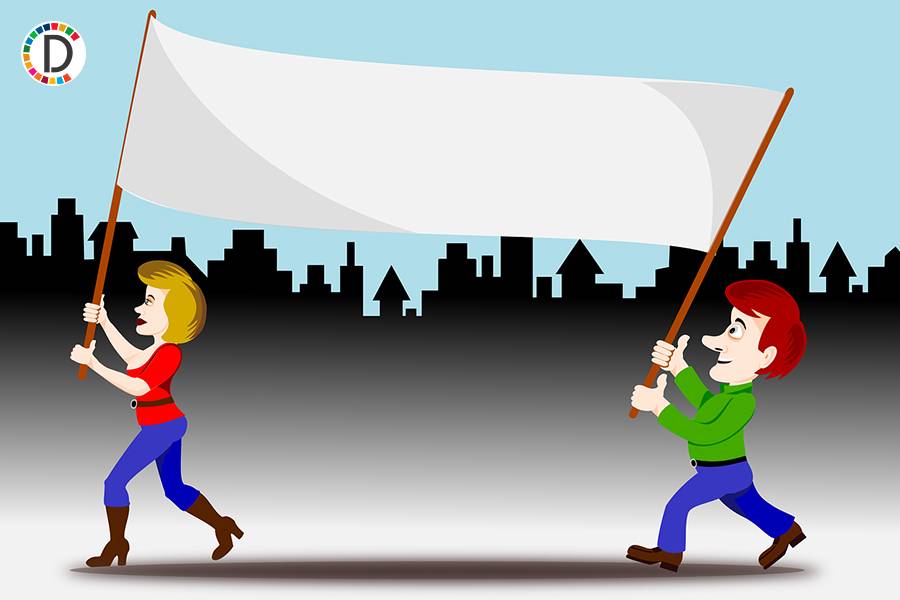Putin vows to punish Ukraine for attacks as Russians vote
Vladimir Putin accused Ukraine on Friday of trying to disrupt a Russian presidential election that is virtually certain to hand him six more years in the Kremlin, and said Moscow would punish Kyiv for its latest attacks. The first of three days of voting was marked by disruptions including dye being poured into ballot boxes, a Molotov cocktail thrown at a polling station in Putin's home town, and reported cyber attacks.

Vladimir Putin accused Ukraine on Friday of trying to disrupt a Russian presidential election that is virtually certain to hand him six more years in the Kremlin, and said Moscow would punish Kyiv for its latest attacks.
The first of three days of voting was marked by disruptions including dye being poured into ballot boxes, a Molotov cocktail thrown at a polling station in Putin's home town, and reported cyber attacks. Millions of Russians cast their ballots across the country's 11 time zones, with officials putting turnout on day one at more than 35%.
The Ukraine war cast a shadow over voting, with what Putin said was repeated shelling of Russia's western regions and an attempt by 2,500 Ukrainian proxies to cross into two Russian regions with tanks. "These enemy strikes will not remain unpunished," a visibly angry Putin said at a meeting of Russia's Security Council.
Ukrainian officials said the attacks were carried out by Russian armed groups based in Ukraine who are opposed to the Kremlin. A Russian ballistic missile attack hit a residential area in Ukraine's Black Sea port city of Odesa, killing at least 20 people and wounding more than 70, in Moscow's deadliest attack in weeks, Ukrainian officials said. President Volodymyr Zelenskiy said Russia would receive a "fair response" for what he said was a "vile" strike.
Amid the Ukraine war, the deadliest conflict in Europe since World War Two, Putin, 71, dominates Russia's political landscape and none of the other three candidates on the ballot paper presents any credible challenge. More than 114 million Russians are eligible to vote, including in what Moscow calls its "new territories" - four regions of Ukraine that its forces only partly control, but which it has claimed as part of Russia. Ukraine says the staging of elections there is illegal and void.
Video released by the Kremlin showed Putin casting his own vote online and waving briefly to the camera. Russians in about a third of the country are able to vote electronically for the first time in a presidential election - something critics say is impervious to scrutiny and open to abuse. "These are the most closed, most secret elections in Russian history," Stanislav Andreichuk, co-chairman of the Golos vote-monitoring group that the state has branded a "foreign agent", told Reuters in a telephone interview.
DYE, CYBER ATTACKS Dye was poured into ballot boxes in Moscow, Russian-annexed Crimea, and the Caucasus region of Karachayevo-Cherkessia, according to Russian media, in apparent anti-Kremlin protests.
CCTV footage of one dye-pouring incident showed a young woman depositing her voting slip before calmly pouring a green liquid into the ballot box. A policeman was seen detaining her immediately afterwards. A Molotov cocktail was thrown at a polling station in St Petersburg, and a 21-year-old woman arrested, the Fontanka news site reported. Arson attempts were recorded at polling stations in Moscow and Siberia.
Russia's electoral commission chief, Ella Pamfilova, said perpetrators of such acts faced up to five years in prison, and suggested they had been paid for by those seeking to disrupt the vote. "Listen carefully everyone," Pamfilova said, before setting out the article in the Criminal Code that addresses disrupting the work of electoral commissions.
The Kremlin says Putin, in power as president or prime minister since the last day of 1999, will win as he commands broad support for rescuing Russia from post-Soviet chaos and standing up to what it calls an arrogant, hostile West. VETERAN RULER
Putin ordered a full-scale invasion of Ukraine in February 2022 after eight years of conflict in eastern Ukraine between Kyiv's forces on one side and pro-Russian Ukrainians and Russian proxies on the other. If Putin completes a new six-year term, he will overtake Soviet dictator Josef Stalin to become Russia's longest-serving ruler since Empress Catherine the Great in the 18th century.
The West views Putin as an autocrat and a war criminal. U.S. President Joe Biden has called him a killer and a "crazy SOB". But in Russia the war has helped Putin tighten his grip on power and boost his popularity with Russians, according to polls and interviews with senior Russian sources.
Russia's best known opposition politician, Alexei Navalny, died suddenly in an Arctic penal colony last month and other Kremlin critics are exiled or in jail. The opposition says the vote is a sham and have called on people across Russia to protest by turning out to vote all at the same time on Sunday, at noon in each of the country's 11 time zones.
(This story has not been edited by Devdiscourse staff and is auto-generated from a syndicated feed.)
ALSO READ
Water level rises sharply in Russia's Kurgan region, RIA reports
Japan calls for law-abiding fix to handling of frozen Russian assets
Water level rises sharply in Russia's Kurgan region
Water level rises sharply in Russia's Kurgan region
Russia, Germany, UK urge restraint as Iranian threat puts Middle East on edge










